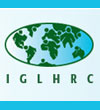News
LGBT Housing Discrimination Worldwide
International Gay & Lesbian Human Rights Commission
Friday, July 24, 2009

Around the world, LGBT people are deprived of the fundamental human right to adequate housing. Discrimination against LGBT people can result in inadequate living conditions and increases their vulnerability to physical and sexual violence, and consequently making them vulnerable to drug abuse, HIV/AIDS, and suicide. Without the right to housing, LGBT individuals cannot experience full and meaningful access to their fundamental human rights. Recent examples of these kinds of violations include:
- In Uganda in 2005 local council members raided the home of a Ugandan LGBT activist. They stated that they were allegedly acting on behalf of neighbors who were disgusted with the activist’s gay lifestyle. In Kenya, two gay men were forced to relocate five times in the preceding years after facing successive threats and physical violence by groups of neighbors (Off the Map (in PDF format), Cary Alan Johnson, IGLHRC).
- In Latin American, transgender people and transsexuals face severe destitution as a result of discrimination based on gender identity and expression. In Argentina, a majority of transpeople are prohibited from fulfilling their basic needs because they are not viewed as legitimate holders of fundamental rights, specifically the right to adequate housing. A transperson from Brazil experienced discrimination based on her gender identity at the age of 13 or 14 when her family forced her to leave the house. The only way she could survive was to become a prostitute ("Trans Latinoamericanas en Situatión de Pobreza Extrema," Mauro I Cabral, IGLHRC).
- In India on November 9, 2008, Amrutahalli police sent a notice, accompanied by verbal threats, requiring 40 homeowners in Bangalore to evict any hijras (LGBT people) who rented rooms or apartments from them. Homeowners, who reported to the media that no hijras had posed any problems, were forced to evict approximately 100 hijras in fear of the police. Those hijras that had been evicted found themselves unexpectedly homeless. Some lost their security deposits while others were deprived of their personal belongings (“Human Rights Watch letter to Indian PM Manmohan Singh,” Scott Long, Human Rights Watch).
- In the United States, between twenty and forty percent of the estimated 1.6 million homeless American youths in 2007 identified as LGBT. Twenty six percent of homeless LGBT youths were driven from their homes by family members. Some reported experiencing physical, sexual, and emotional abuse. Those who sought refuge through shelters reported being menaced, humiliated, and assaulted by staff members (“Lesbian, Gay, Bisexual and Transgender Youth: An Epidemic of Homelessness,” National Gay and Lesbian Task Force).
